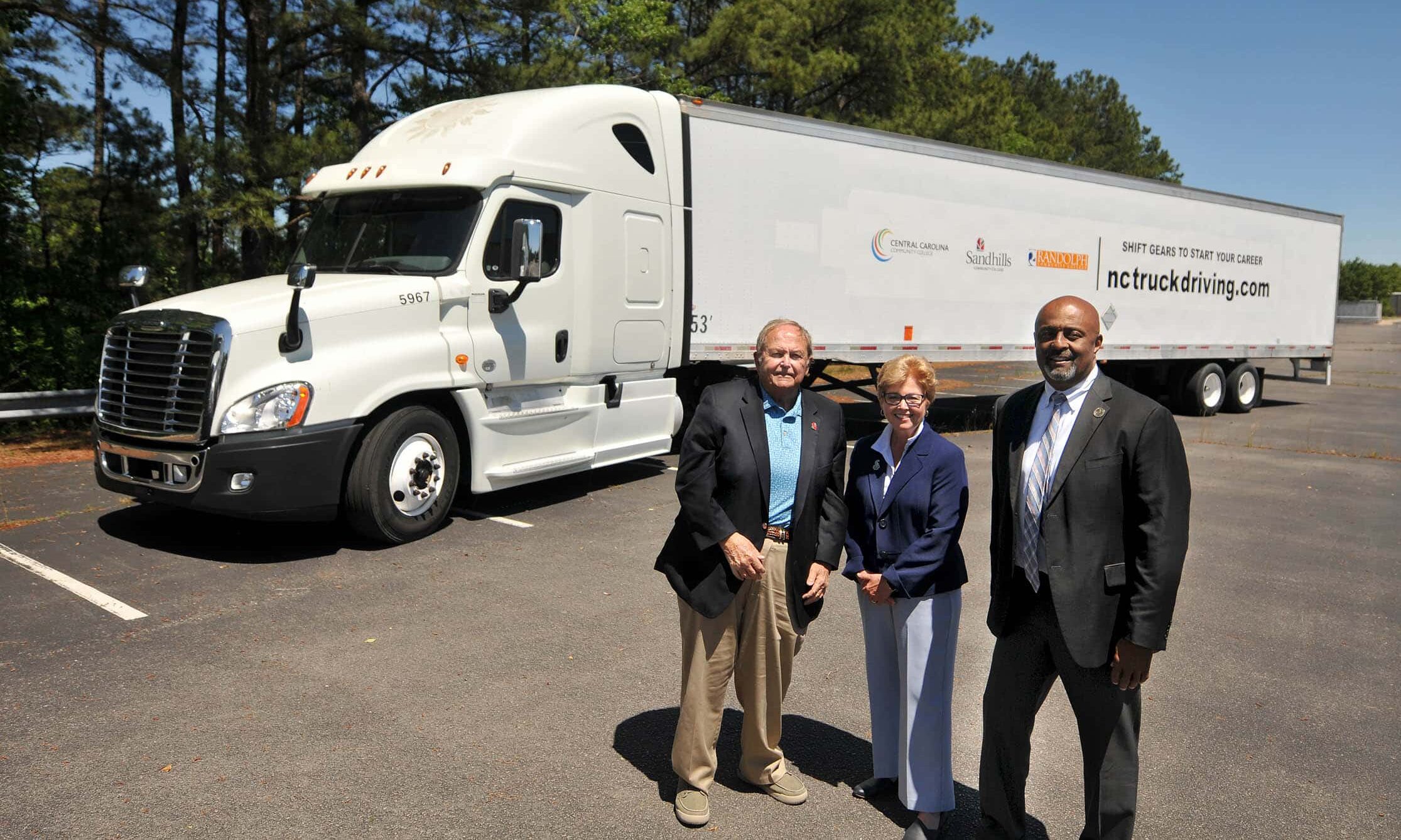
September 22, 2022
Collaboration is the key to the success for the Transportation Regional Career Kickstart (TRuCK) program serving Chatham, Harnett, Hoke, Lee, Moore, and Randolph counties.
In April 2022, the Golden LEAF Board of Directors awarded $498,924.36 to Central Carolina Community College to support TRuCK program. This innovative project provides funding to Central Carolina Community College (CCCC) to support a regional truck driving and logistics program in consortium with Sandhills Community College and Randolph Community College.
While each community college has its coverage area, there are oftentimes overlapping employer needs for training that have a high cost associated with running the program. Golden LEAF recently supported the TRuCK program to support community colleges working to solve the issue of high cost programming, where there are substantial training needs.
“We have the workforce demand,” said Margaret Roberton, Vice President of Workforce Development at Central Carolina Community College. “There was a major gap in the state that ran through the coverage area of Central Carolina, Sandhills, Randolph community colleges. You have these three colleges covering six counties and a high need for an expensive program.”
The three colleges are working together to provide CDL and short-term logistics courses with transportation and logistics credentials on a staggered schedule so a program is available to start within weeks of each other. Golden LEAF funds are being used for trucks and trailers, training equipment, and supplies.
“The Federal Motor Carrier Safety Administration is putting rules in place to make sure drivers are ready when they finish training, so when they get hired, they are ready to work,” said Roberton. “Our collective leadership really looked at how to address a high demand program and balance the fact that it is truly one of the more intensive cost programs to run.”
When looking at collaboration between community colleges, the issue becomes who will earn the full-time equivalent (FTE) that determines how much funding each college will receive from the state.
“The program is marketed, advised, and managed over centralized resources but each course runs within the college so that those FTE report to the college teaching the course,” said Roberton. “The coordinator for the program works across all three institutions. His role is to make sure that we are all being consistent at all the colleges.”
The truck driver training programs are 400 hour courses, so each course is a 10 or 11 week course, depending on scheduling.
“Any individual college, unless you just have a fleet of trucks, can only offer a course every ten weeks,” said Roberton, “but with the three colleges working together you can catch a class every four to five weeks. We advise across colleges, so we are best serving students to get into the next program that best fits their location and time constraints as opposed to what we as college have constraints on.”
In fact, the colleges have branded their fleet of trucks with all three college logos, have a centralized website for people to get information about the program, and market with billboards and other marketing strategies collaboratively.
“At the end of the day all the colleges want students to have the training they need to get the good jobs in our area,” said Roberton. “We are just collectively looking at a unique way of approaching these training needs. Getting folks in the room and thinking a little differently about how we need to tackle things is a pretty big step for how colleges usually run. There is definitely an element of trust. There is a lot of communication, and then there’s some tweaking as we go.”
Roberton said they want to eventually grow the regional approach with more of the transportation logistics.
“Ideally, we would like to expand from truck driving into some of the other high need logistics pieces,” said Roberton. “We are looking at how we continue this regional concept particularly again in administrative support, advising, and external communications areas.”
For more information about the TRuCK program, visit nctruckdriving.com.
Priority Area Program Area Project Description